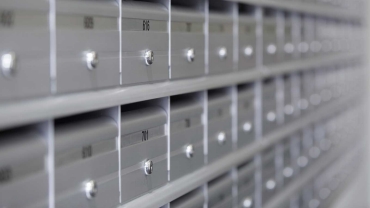
PwC Podcast: Ukraine’s news ad hoc #5. What private investors should know about Ukrainian government military bonds?
05/05/22
There are a number of ways available these days to support the State and the army financially. For example, one can donate to a special account with the NBU or to charities or purchase government military bonds. These instruments, on top of being a powerful tool to help the Ukrainian Armed Forces and support the country during martial law, provide a real opportunity to earn an investment income that has already been taken by over 9 thousand individuals and businesses.
Artem, the first question is to you. What is your opinion on this government initiative and what are the key military bonds terms and conditions: currency, yield, maturity and other conditions?
Artem: To begin with, one should be aware that military bonds are the same government bonds Ukraine routinely issued before martial law was imposed. However, due to the temporary ban on trading in any securities in the domestic stock market, including the government bonds, the Ministry of Finance launched this new type of bonds in order to fund social and defence needs. Hence, a legal distinction between government bonds and government military bonds was introduced to enable trading in them in the market.
Now back to your question. Military bonds are issued in UAH and in foreign currencies, such as USD and EUR. Unlike regular government bonds, foreign currency denominated bonds can only be purchased for the foreign currency.
The yield depends on maturity. For example, 3-months UAH-denominated bonds carry 9.5% p.a., 6-months bonds carry 10% p.a. and 12-months or longer carry 11% p.a. It should be noted that all UAH-denominated issues are discounted issues, i.e. they are placed below their face value and carry no coupon. The investor receives the yield only at maturity.
USD-denominated bonds carry 3.7% p.a. and EUR-denominated bonds carry 2.5% p.a. Foreign currency denominated bonds earn a coupon.
Maryna: I have a practical question to you, Artem. How and when do I purchase government military bonds? What fee level is now common in the market?
Artem: Any resident of Ukraine, both legal entities and individuals, may purchase government military bonds in primary and secondary markets. Option one: you should submit your application to purchase bonds to the bank. Bonds are placed every Tuesday. Option two: purchase through a bank or mobile app of various financial services companies by purchasing from a stock exchange on any day during business hours of the stock exchange.
Primary market may provide a slightly higher yield, but given the maturity of the bonds, this difference is not material. Secondary market is highly liquid, many banks quote bond issues both in UAH and in foreign currencies.
The fees are minimal. While before the war, transaction costs to acquire government bonds could be as high as UAH 1,000 plus investor's servicing costs, now we are talking UAH 100-200.
Maryna: Thank you, this is now clear. As an experienced investment manager, would you recommend this instrument to your clients and why?
Artem: As a Ukrainian national, I can say that military bonds are an immediate way to help the State today. As an investor, the yield if of course quite low, considering the expected inflation rate. And now, when we combine these two personae, what I can say is this: if you are both willing and able to held the State, then military bonds are the best instruments as the State will return this assistance and on top of that, will pay for using your money.
So this instrument is beneficial for both parties to the arrangement. If you only donate, it is also the right cause. But in this case, no one will return you your money.
Also, I would launch a serious promo campaign to target foreign investors. Bonds are an instrument they are familiar with. And this type of financial assistance could attract significant international cash to Ukraine from abroad. The regulator has already began lifting restrictions on investment in government military bonds by non-residents. It is the right thing to do going forward.
Maryna: Artem, thank you for your structured responses.
Vadym, the next question is to you as a legal expert. How does the NBU regulate purchases of military bonds?
Vadym: Purchases of military bonds are currently quite straightforward from the baking regulation perspective. To purchase military bonds, you need to follow the standard bureaucratic process depending on the institution through which you are purchasing.
One step within the process is opening a securities account (unless you already have one). It is permitted to open such an account remotely by submitting relevant documents digitally signed with the qualified electronic signature. And if you already have such account (e.g. if you have previously purchased regular government bonds), then the process is even more straightforward: transfer the cash - purchase the bonds, that's it.
The most important area, in my opinion, is what kind of money you are using to purchase these military bonds and in what amount you are purchasing: cash/bank account; under/over UAH 400 thousand:
- If you are paying from your bank account up to UAH 400 thousand - no problem whatsoever;
- If you are paying from your bank account over UAH 400 thousand - the banking institution may have questions, but not necessarily;
- If you are paying cash up to UAH 400 thousand - the banking institution may also have questions, but not necessarily;
- If you are paying cash over UAH 400 thousand - there will definitely be questions.
During martial law, things become much simpler even for the last scenario as the Law explicitly permits banks to transfer cash for the purchase of military bonds even for customers who have failed to provide documents or information requested by the bank.
But do not forget that in the future, once the war is over and bonds are redeemed, the bank will check the origin of this money. And here is where a situation could arise when an individual has supported the State during the war by transferring a significant amount to purchase government bonds and yet is ultimately unable to make use of them. The legislator may address this issue in the future. Today, however, everyone intending to purchase government bonds for significant amounts of cash should keep this risk in mind.
Maryna: In your opinion, what are the distinctions for purchases of military bonds by residents and non-residents?
Vadym: The NBU set up a simplified procedure for opening bank accounts for the purpose of purchasing military bonds for non-resident individuals and for resident individuals abroad, namely:
Banks may use a new simplified individual customer identification and verification model prior to opening accounts to purchase military bonds:
- obtain copies of documents using remote banking, email using a qualified e-signature/advanced e-signature, other remote communication channels within the bank's technical capabilities;
- sign the copies of documents received using a qualified e-signature;
- initiate a video call with the customer, obtain the customer's consent to the video call and photo recording, take a photograph of the individual and a photograph of the individual holding his/her ID and retain the video record.
Similarly to individual residents, all procedures required by financial monitoring law should then be completed prior to redemption of government bonds. Therefore, significant disagreements with banks may arise at redemption of government bonds.
So to summarise:
- purchasing military bonds is quite a convenient and straightforward process at the moment for residents and non-residents alike;
- you still need to go through a certain bureaucratic process;
- issues may arise in the future for those investors who are purchasing military bonds in significant amounts and who are unable to provide sufficient evidence to support the origin of cash they are using to purchase government bonds. So this is something that should be kept in mind.
Maryna: Dear friends, thank you for this interesting conversation. There are numerous investment firms and banks in the market these days who provide services supporting purchases of military bonds and the customer is in a position to choose the most beneficial terms.
At PwC Ukraine, we are always prepared to provide recommendations on working with the NBU and Ukrainian banks in financial monitoring and currency regulation areas.
On this note, we are wrapping up our fifth episode in our special series of podcasts. Feel free to leave your questions in the comment sections and share our podcasts with your friends, co-workers and family. Follow PwC Ukraine on social media and keep up with the latest news.
We are already working on the new podcast episode for you, in which we will discuss employment legislation changes during martial law with representatives from the Ministry of Economy and the State Labour Service.
So keep calm and listen to PwC podcasts. To the Victory, together!
Follow PwC Ukraine channels:
Soundcloud Apple Podcasts Google Podcasts











